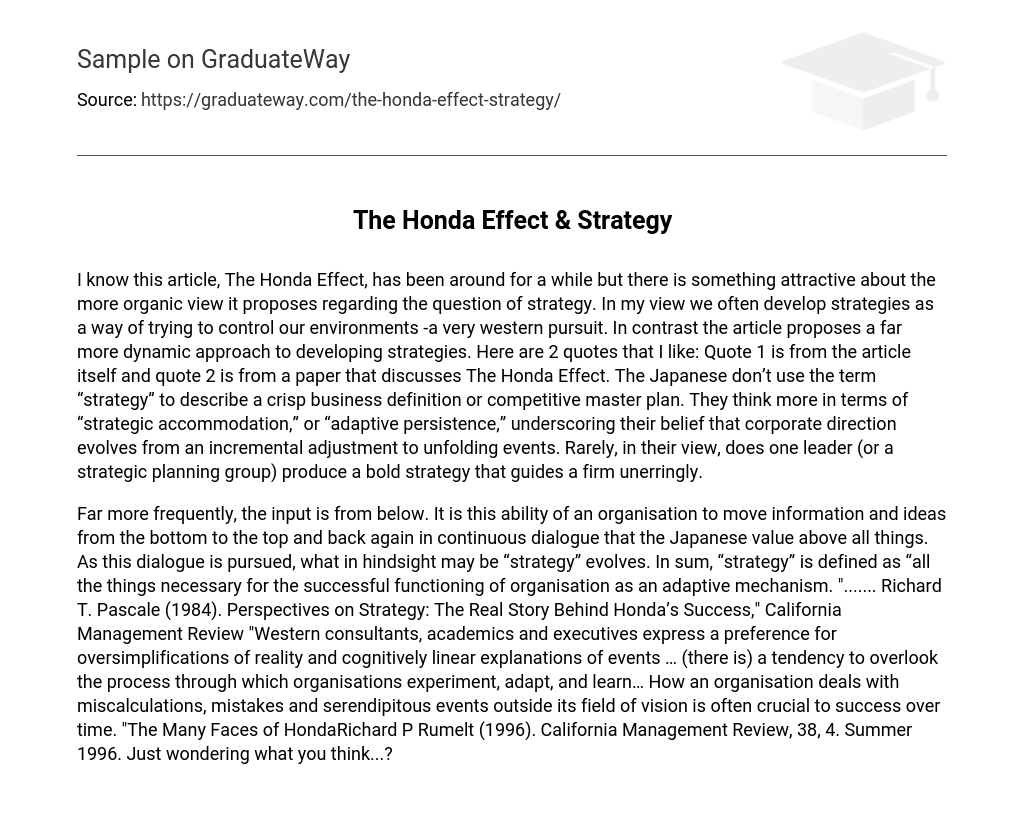I find The Honda Effect article to be appealing due to its more organic perspective on strategy. Typically, we develop strategies in order to control our environments, which is a very Western approach. However, this article suggests a more dynamic method of strategy development. There are two quotes that I particularly like: Quote 1 is from the article itself, while Quote 2 is from a paper discussing The Honda Effect. The Japanese do not use the term “strategy” to describe a precise business definition or competitive master plan. Instead, they think in terms of “strategic accommodation” or “adaptive persistence,” emphasizing their belief that corporate direction evolves through incremental adjustments to unfolding events. They rarely believe that one leader or strategic planning group can produce a bold strategy that guides a firm without error.
More often, the input originates from below. The Japanese highly value an organization’s ability to facilitate a continuous dialogue, allowing information and ideas to flow from the bottom to the top and vice versa. It is through this ongoing dialogue that what may be referred to as “strategy” gradually takes shape. In essence, “strategy” encompasses all the necessary components for an organization to function successfully as an adaptable mechanism. Richard T. Pascale (1984) stated in “Perspectives on Strategy: The Real Story Behind Honda’s Success” in the California Management Review that Western consultants, academics, and executives tend to prefer simplified versions of reality and linear explanations of events, often disregarding the process of experimentation, adaptation, and learning within organizations. It is important to consider how an organization handles miscalculations, mistakes, and unexpected events beyond its immediate focus, as this often plays a crucial role in long-term success. Richard P Rumelt (1996) emphasizes this in “The Many Faces of Honda” in the California Management Review. What are your thoughts on this matter?





